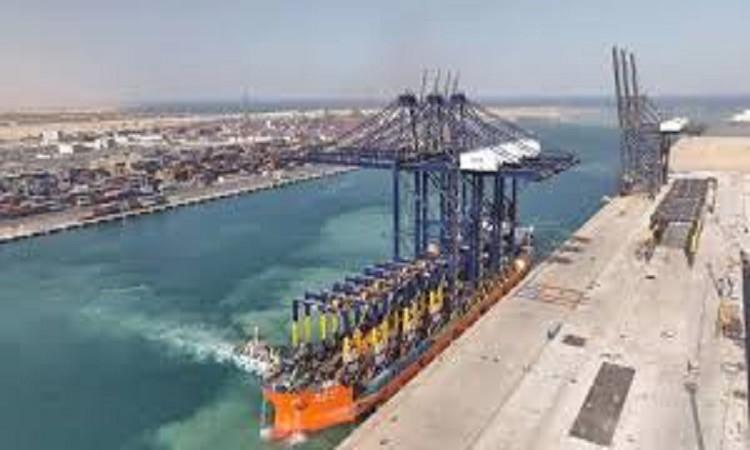Mohamed Abdel Ghaffar, head of the African Economic Council, emphasized the importance of attracting African investments to the Suez Canal Economic Zone, highlighting its strategic role in providing landlocked African nations access to Mediterranean trade routes. He noted that despite abundant natural resources across the continent, nearly one-third of African countries lack direct sea access due to colonial-era border demarcations, limiting their global trade share to just 9%. However, Egypt’s expansion of the Suez Canal has helped elevate Africa’s share in international commerce to 15%, prompting growing interest from African governments seeking industrial footholds within the zone.
During an appearance on the Egyptian television program “Tahya Masr,” Abdel Ghaffar pointed out that major global economies such as China, Russia, Italy, and Turkey have already established industrial zones there, motivated by both economic sanctions avoidance and the benefits of Egyptian certificates of origin, which facilitate market entry into Africa under preferential trade agreements.
He cited Nigeria—one of Africa’s largest economies with a national income exceeding half a trillion dollars—as actively sending economic delegations to negotiate the establishment of an industrial zone. This move aims to overcome geographic isolation and limited port capacity on the Atlantic coast while gaining proximity to Mediterranean markets. Several African nations are exploring opportunities in petrochemicals, construction materials, and even vehicle manufacturing within the zone.
Abdel Ghaffar highlighted that Egypt’s investment-friendly legal framework, skilled labor force, competitive energy prices, and macroeconomic stability have made the country a prime destination for advanced industries. These advantages have attracted European manufacturers, including a major Spanish-Italian tire production project by a globally recognized brand.
He also revealed that the United States has dispatched economic missions to discuss creating an electronics manufacturing hub modeled after Silicon Valley, underscoring confidence in Egypt’s security, low inflation, and recent economic progress.
Furthermore, he praised Egypt’s 2018 Investment Law for offering strong investor protections, including guarantees for capital repatriation in foreign currency—an essential factor driving record inflows. As a result, Egypt recorded some of the highest foreign direct investment levels in Africa and the Arab world in 2025, marking a significant milestone in its economic trajectory.
— news from \”الهيئة الوطنية للإعلام\”
— News Original —
Mohamed Abdel Ghaffar: The Suez Canal Economic Zone strengthens Egyptian economic integration
Mohamed Abdel Ghaffar, head of the African Economic Council, stressed the importance of attracting African investments to the Suez Canal Economic Zone, especially given the necessity for African investments in the area to gain a Mediterranean gateway. He pointed out that many African countries are rich in vast resources, but due to the geographical demarcation of the African map since the colonial era, a third of African countries are landlocked without seas or oceans, limiting their level of trade exchange with the world. Their share in global trade has remained stagnant at 9%, until Egypt doubled the Suez Canal waterway, elevating African global trade to 15%. This has led African countries to recognize the importance of having trade centers and hubs in the Suez Canal Economic Zone.
He added during a meeting with the program (Tahya Masr) that many major world countries such as China, Russia, Italy, and Turkey were among the nations that preceded and already established industrial zones in the Suez Canal Economic Zone to avoid global sanctions or economic blockades faced by many industrial countries, and also to obtain the Egyptian certificate of origin, enabling them to access African countries under the umbrella of guarantees and privileges achieved by the Egyptian state through preferential trade agreements.
He explained that a country like Nigeria is one of the major economies on the African continent and has the largest national income among African countries, exceeding half a trillion dollars. It is currently sending numerous commercial and economic delegations to Egypt to negotiate obtaining an industrial zone in the Suez Canal Economic Zone to overcome its geographic isolation, as its oceanic ports are greatly limited in capacity, and also to reach northern Mediterranean littoral countries. These countries always target sectors such as petrochemicals and construction materials industries, and some African countries are exploring the possibility of manufacturing vehicles in the Suez Canal Economic Zone.
He revealed that the Suez Canal Economic Zone strengthens Egyptian-African economic integration and encourages African industries due to Egypt’s investment-incentive laws for global investments, in addition to the availability of skilled labor and low energy prices, a primary reason for the rush of many countries, whether African or even European industrial nations like Spain and Italy, which transferred many industries, including a massive tire manufacturing project entirely on Egyptian soil by one of the world’s leading global brands. Egypt also boasts a large market and possesses many qualities making it the primary attraction point for advanced industries and a fundamental destination for global industries.
He also clarified that the United States sent numerous economic delegations to negotiate securing space to establish an electronic industrial zone mimicking “Silicon Valley” in Los Angeles on Egyptian soil, with all these countries carefully seeking to move their promising industries away from global conflicts due to Egypt’s qualities, in addition to stability, security, low inflation rates, and the significant successes and huge leaps achieved by the Egyptian economy over the previous two years.
He pointed to the facilities and incentives offered by Egypt, especially to African investments, noting that among the most important facilities provided by Egypt are those included in the Investment Law enacted in 2018, which was indeed a legislative success for the Egyptian state, providing guarantees for investors’ rights and working capital in Egypt, and also ensuring investors’ ability to transfer investment returns and profits abroad in foreign currency, representing the greatest success of Egyptian financial policy, encouraging investors to operate in Egypt, leading to Egypt recording one of the highest investment inflow rates in Africa, the Arab world, and in previous years of the Egyptian economy.
The program (Tahya Masr) airs on the Egyptian Satellite Channel
Direction: Noha Adel
Editor-in-Chief: Noha Salman
Presenter: Abeer Abu Talib.
